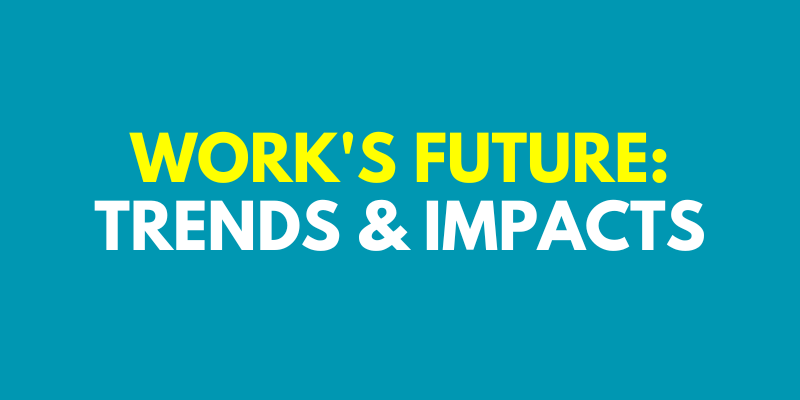
The world of work is constantly evolving, driven by technological advances, demographic changes, and global events. It is becoming increasingly obvious as the twenty-first century progresses that the nature of employment as we know it will drastically change. This article will explore some of the emerging trends in the world of work and their implications for workers, businesses, and society as a whole.
Remote Work:
In the current job market, even Freshers Jobs are being impacted by the transition to remote work. While remote work offers advantages such as increased flexibility and the ability to work from anywhere, it can also make it more challenging for new graduates to establish themselves in their careers. Without the traditional office environment to rely on for networking and mentorship, new graduates may need to be more proactive in seeking out opportunities to build their professional networks and gain valuable experience. As the trend towards remote work continues, it will be important for businesses to find ways to support and mentor new hires, especially those in entry-level Freshers Jobs.
The Gig Economy:
Workers looking for flexibility and autonomy now have new opportunities thanks to the growth of the gig economy. However, it has also led to concerns about job security, benefits, and fair pay. As more and more workers turn to freelance work, it is important for businesses and policymakers to address these concerns and ensure that gig workers are protected.
Automation and AI:
The transition to remote work has also impacted the hiring practices of companies such as Amazon. While Amazon Jobs have traditionally required on-site work, the shift to remote work has opened up new opportunities for job seekers. Remote work has allowed Amazon to tap into a larger pool of talent and expand its workforce beyond traditional geographic boundaries. However, as with any remote work arrangement, effective collaboration and communication tools are critical to the success of Amazon Jobs. It will be important for Amazon to continue to invest in these tools and find ways to maintain a strong company culture even in a remote work environment.
Diversity and Inclusion:
The push for greater diversity and inclusion in the workplace is becoming increasingly important. In addition to being morally correct, it has a lot of advantages for organisations, such as increased creativity, innovation, and profitability. True diversity and inclusion, however, demand a committed effort and a dedication to change.
Flexibility and Agility:
Businesses nowadays need to be flexible enough to respond swiftly to opportunities and difficulties. This requires a culture of flexibility and agility, where employees are empowered to take risks and try new things. Future success will be more likely for businesses that can cultivate this kind of culture.
Conclusion:
As one of the world’s largest technology companies, Google Careers are at the forefront of the changing world of work. Google has been a leader in embracing remote work, and the company has invested heavily in collaboration and communication tools to support its distributed workforce. Google has also been a vocal advocate for diversity and inclusion in the workplace, and has implemented a number of programs to promote these values. As automation and AI continue to transform the world of work, Google is also investing in new technologies and tools to help workers stay ahead of the curve. By staying at the forefront of these emerging trends, Google Careers are helping to shape the future of work for generations to come.